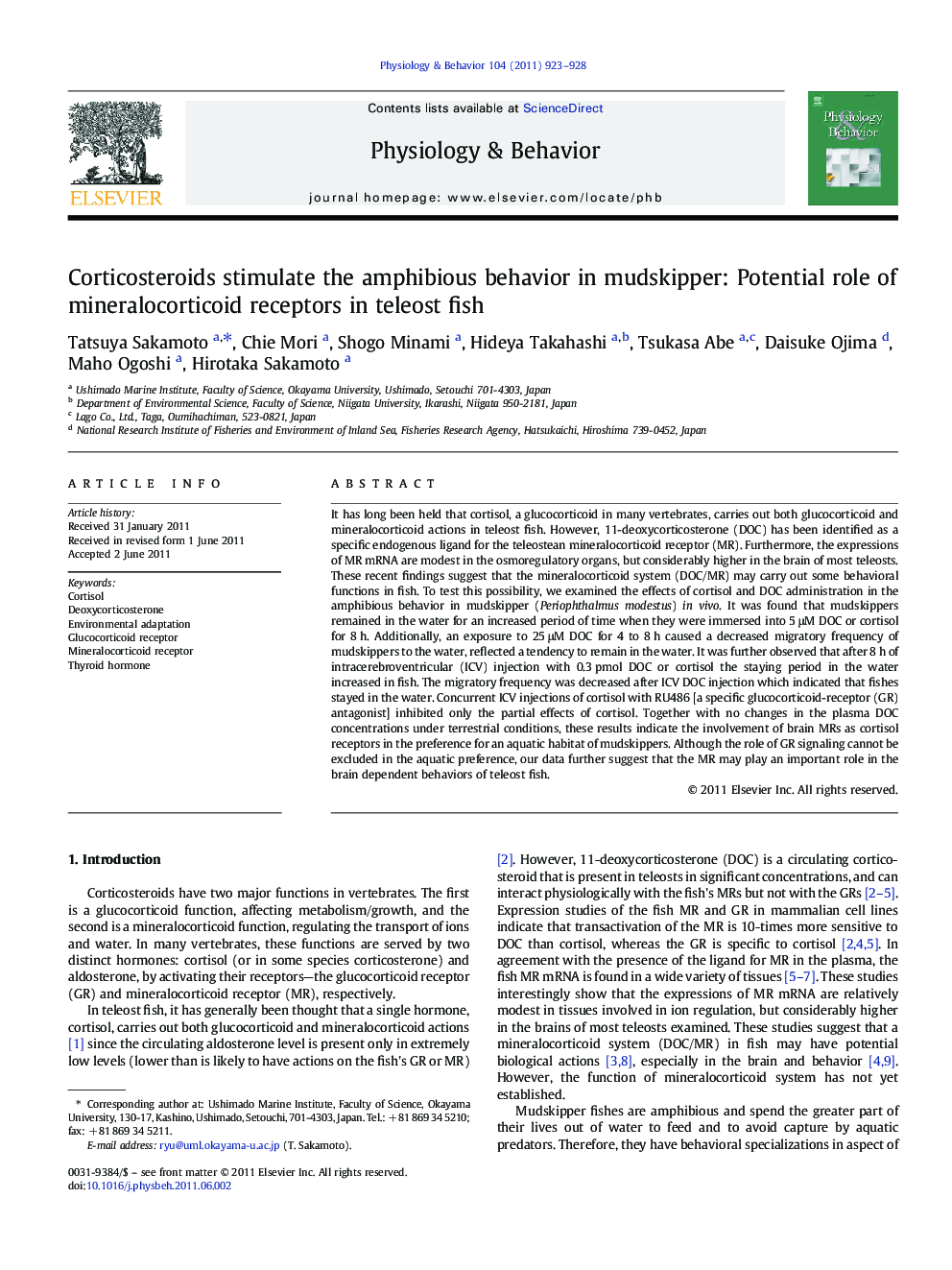| کد مقاله | کد نشریه | سال انتشار | مقاله انگلیسی | نسخه تمام متن |
|---|---|---|---|---|
| 5925270 | 1166344 | 2011 | 6 صفحه PDF | دانلود رایگان |

It has long been held that cortisol, a glucocorticoid in many vertebrates, carries out both glucocorticoid and mineralocorticoid actions in teleost fish. However, 11-deoxycorticosterone (DOC) has been identified as a specific endogenous ligand for the teleostean mineralocorticoid receptor (MR). Furthermore, the expressions of MR mRNA are modest in the osmoregulatory organs, but considerably higher in the brain of most teleosts. These recent findings suggest that the mineralocorticoid system (DOC/MR) may carry out some behavioral functions in fish. To test this possibility, we examined the effects of cortisol and DOC administration in the amphibious behavior in mudskipper (Periophthalmus modestus) in vivo. It was found that mudskippers remained in the water for an increased period of time when they were immersed into 5 μM DOC or cortisol for 8 h. Additionally, an exposure to 25 μM DOC for 4 to 8 h caused a decreased migratory frequency of mudskippers to the water, reflected a tendency to remain in the water. It was further observed that after 8 h of intracerebroventricular (ICV) injection with 0.3 pmol DOC or cortisol the staying period in the water increased in fish. The migratory frequency was decreased after ICV DOC injection which indicated that fishes stayed in the water. Concurrent ICV injections of cortisol with RU486 [a specific glucocorticoid-receptor (GR) antagonist] inhibited only the partial effects of cortisol. Together with no changes in the plasma DOC concentrations under terrestrial conditions, these results indicate the involvement of brain MRs as cortisol receptors in the preference for an aquatic habitat of mudskippers. Although the role of GR signaling cannot be excluded in the aquatic preference, our data further suggest that the MR may play an important role in the brain dependent behaviors of teleost fish.
Research highlights⺠Roles of corticosteroids were examined in amphibious behavior of a mudskipper goby. ⺠ICV treated fish with a specific MR ligand, DOC, preferred the aquatic habitat. ⺠MR may play an important role in the brain dependent behavior in teleost fish.
Journal: Physiology & Behavior - Volume 104, Issue 5, 24 October 2011, Pages 923-928